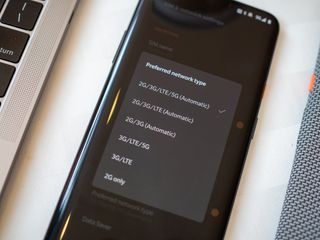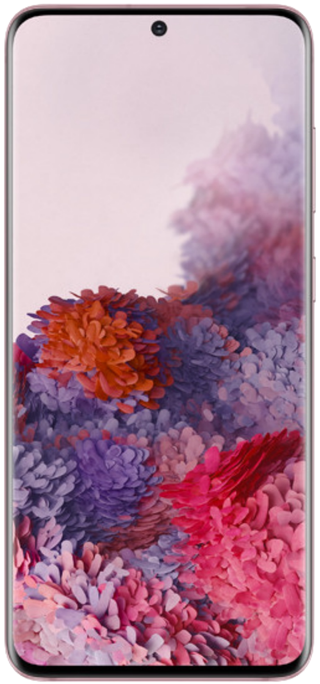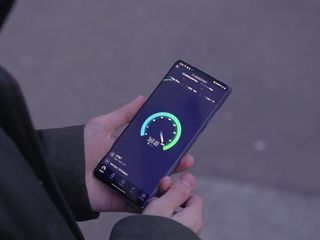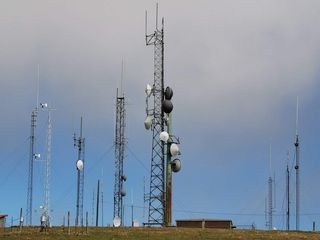7 reasons to get 5G service in 2022

5G is available from every carrier and most flagship phones are equipped to access these networks. While it may not be worth upgrading your phone for 5G, if you need a new phone, it makes a lot of sense to make sure it's compatible with the next generation of mobile broadband. With coverage constantly improving and plenty of phones to choose from, it's time to get 5G service.

Top specifications with sub-6 5G built in
Samsung's latest Galaxy comes with a fast Snapdragon 865, a large 4,000mAh battery, and a great camera. It also supports sub-6 5G.
You already have 5G coverage
A year ago most people didn't have any 5G options in their areas, especially if they didn't live in a big city but with sub-6 5G, T-Mobile and AT&T have greatly increased the range of their 5G towers. In fact, AT&T now claims to cover more than 120 million people with its combination of sub-6 850Mhz (n5) and 39GHz mmWave (n260) 5g coverage. T-Mobile claims to cover more than 200 million people with coverage in all 50 states. T-Mobile's rapid expansion comes with its large quantity of 600Mhz (n71) spectrum with capacity added thanks to Sprint's 2.5GHz (n41) spectrum as well as T-Mobile's own mmWave nodes at 39GHz (n260) and 28GHz (n261).
Verizon has been trucking along with its own network with a much more limited 35 cities with some level of coverage. Needless to say, if you want to stick with Verizon, 5G isn't going to be your main network any time soon.
- 5G on AT&T Wireless: Everything you need to know
- 5G on T-Mobile & Sprint: Everything you need to know
- 5G on Verizon: Everything you need to know
Make the most of your new phone

Many people commit to a couple of years before upgrading their smartphones. With 5G deployment right around the corner for most people, having a phone that will be ready for this new technology makes sense. With a 4G-only phone, you could be paying for a network you can't even access until your next upgrade opportunity.
Buying electronics for next year rather than this year is a common practice for many people. It's annoying having a phone that doesn't support the newest tech when it's only a few months old. Luckily the majority of flagship Android phones to come out this year have come with some sort of 5G network. This includes the newest OnePlus 8, LG V60 Thinq, and of course the Samsung Galaxy S20 series of phones.
5G has more capacity
If you are connected to 5G technology you are connected with the most modern, most powerful wireless network available. With 4G LTE Advanced, you can get many of the speed benefits of 5G, but your latency will be higher and the network won't be as efficient at handling a full load. Greater latency will be felt when navigating many different apps that require a constant online connection.
Be an expert in 5 minutes
Get the latest news from Android Central, your trusted companion in the world of Android
The extra milliseconds it takes 4G LTE to form a connection can really start to add up for a heavy user. To add to this, 5G will be able to route a large number of connections simultaneously to help the network feel responsive even when it is hit with a heavy load.
More room to grow

When it comes down to it, bandwidth is the biggest factor affecting speed and consistency on a wireless network. In this case of mobile networks, it depends on how much spectrum a carrier has been able to use in a location that isn't consistent across the entire country. Still, 5G has been making use of a much wider range of spectrum from sub-6 bands from AT&T, Sprint, and T-Mobile, to millimeter-wave 5G operating above 28GHz. Even still, the FCC is opening up additional spectrum on the C-Band, around 3.5GHz, to be used for 5G.
A better hotspot
Verizon at least offers more hotspot data on 5G. Even if you have your standard hotspot limit, 5G offers a connection much more competitive with a home connection and in many cases, faster than cable or even fiber. 5G as a home internet service is in the early stages of being rolled out but it skips most of the coverage concerns of mobile 5G while keeping all of the benefits.
Move to the cloud
A lot of us know the benefits of cloud saving — save space on your phone and reduce clutter by offloading apps and saved files to the cloud. 5G can help you retrieve these files with little delay and can allow you to work from multiple devices fluidly. It can also simply reduce the load on your local machine.
Treating data like a limited resource can really hurt the usefulness of a phone. When data is an afterthought, you are free to use your phone to the best of its ability without worrying about your connection. New phones have beautiful, high-resolution displays and having the data needed to push full HD videos and even games with 5G finally takes advantage of these beautiful screens.

Cutting edge
If you're like me, you like living on the cutting edge of technology. Having the fastest possible connection on my phone is a path towards a more useful and more complete smartphone experience. As more of my computing moves from home to my laptop or phone, a fast connection is more important than ever.
At the end of the day, new technology only matters if you can use it. With solid coverage, the experience available with 5G will be transformative for someone that needs to move a lot of data or demands immediacy in their daily life. 5G deployment is picking up steam and I, for one, want to be on the first train out.

Top specifications with sub-6 5G built in
Samsung's latest Galaxy comes with a fast Snapdragon 865, a large 4,000mAh battery, and a great camera. It also supports sub-6 5G.
5G isn't for everyone just yet
5G is the newest and coolest mobile technology currently being built into phones but there are still a few reasons to wait.
When Samuel is not writing about networking or 5G at Android Central, he spends most of his time researching computer components and obsessing over what CPU goes into the ultimate Windows 98 computer. It's the Pentium 3.

